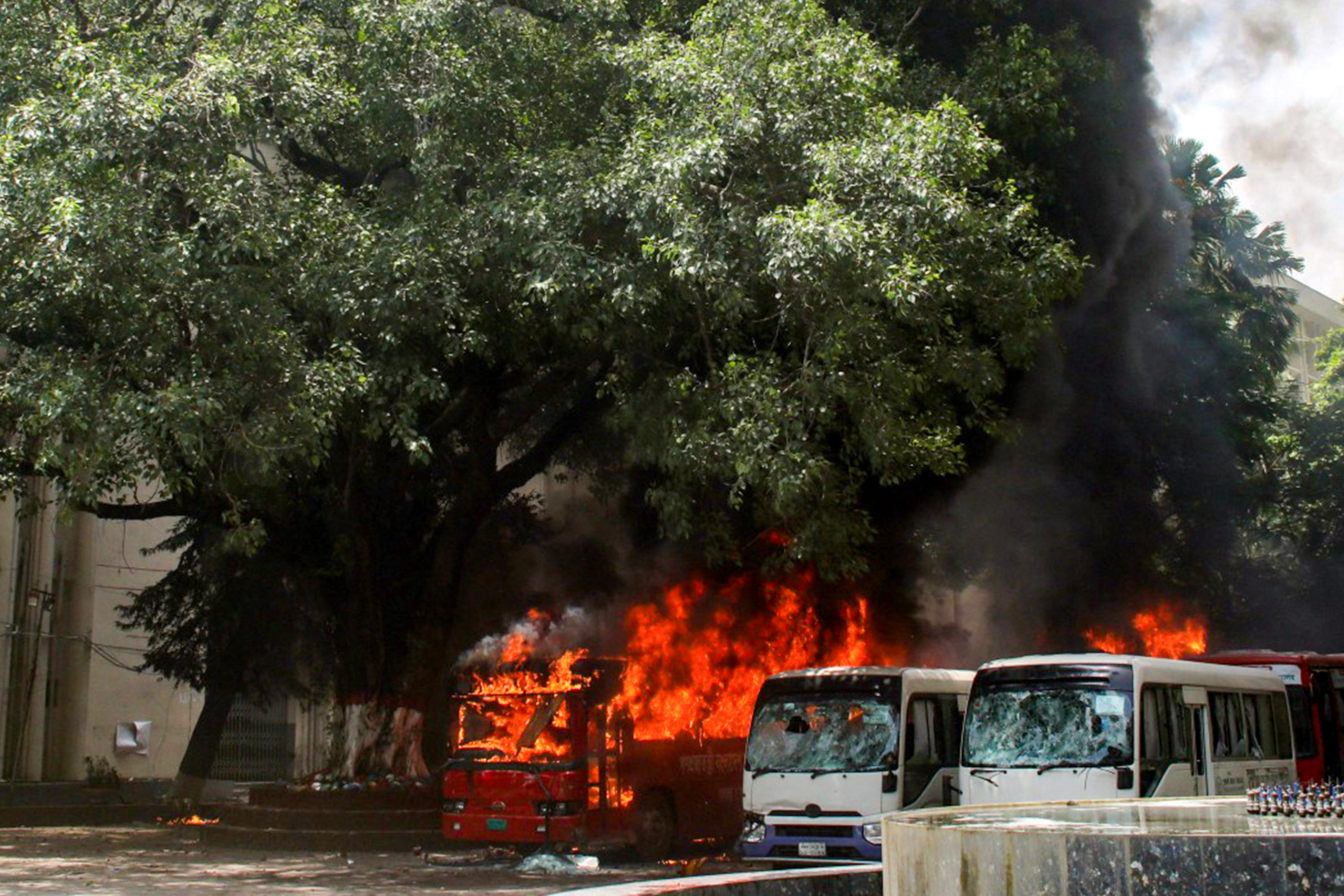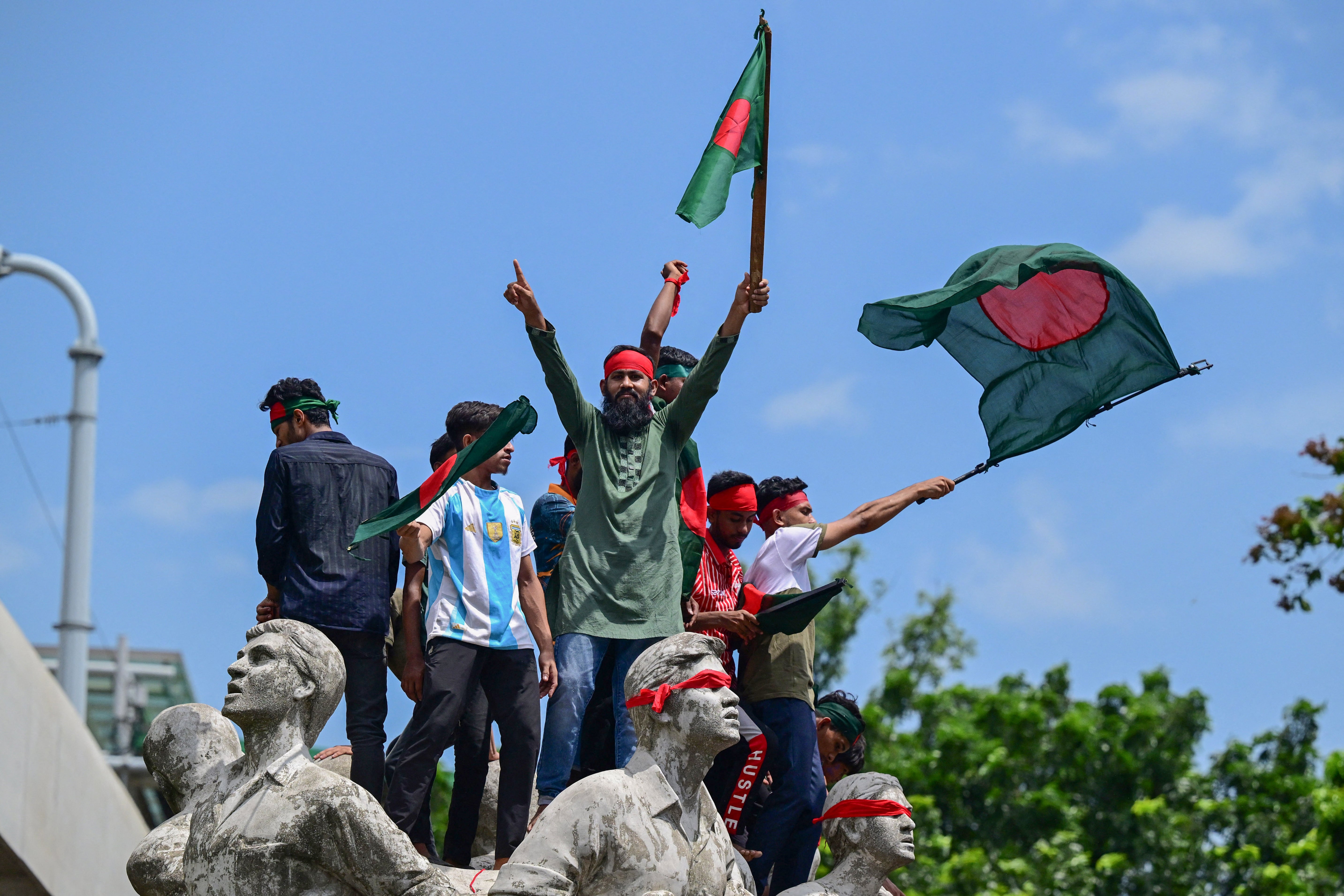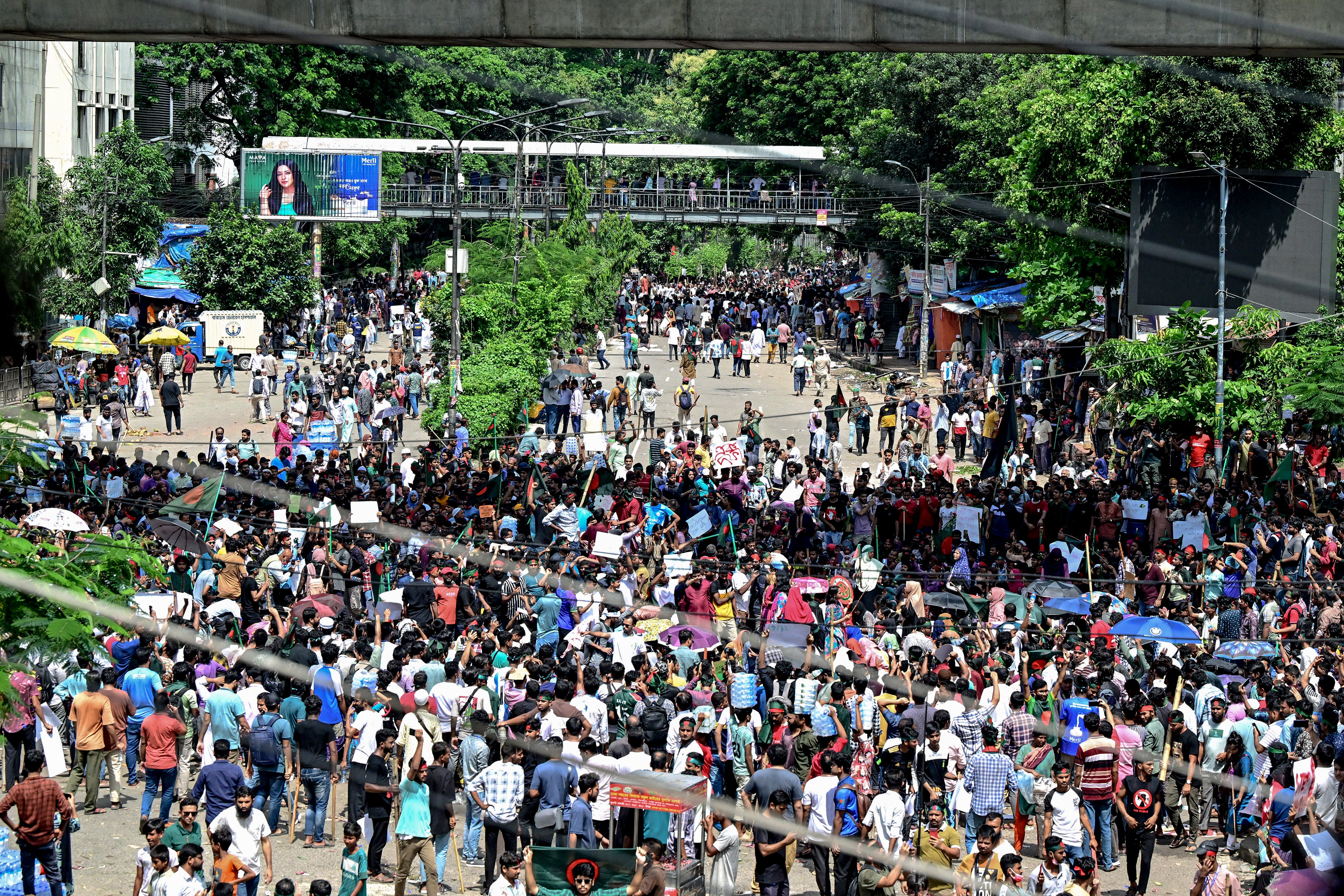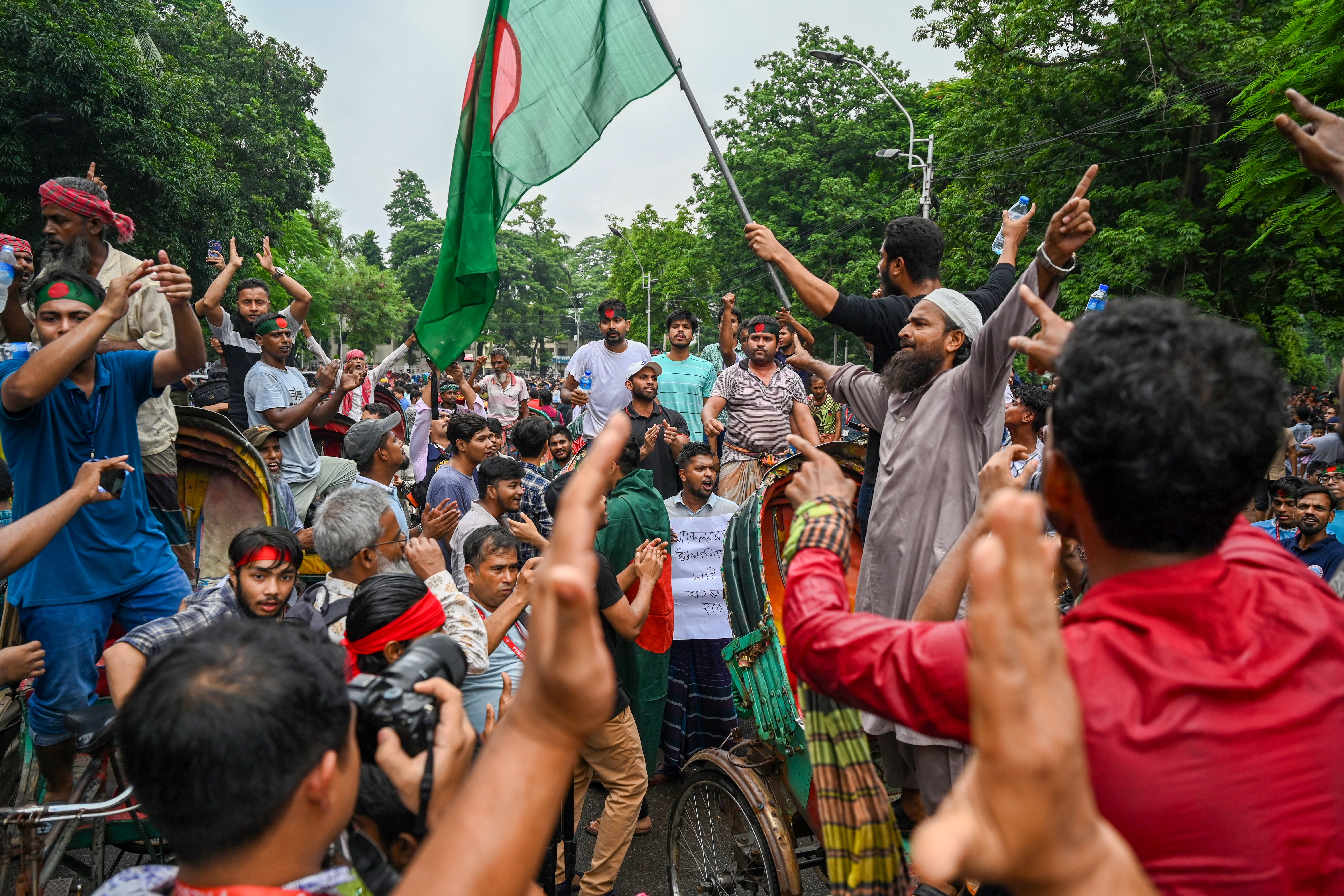At least 27 people have been killed in Bangladesh over the weekend as anti-government protesters clashed with the police during fresh demonstrations.
Hundreds of thousands of protesters returned to the streets of the South Asian nation demanding the resignation of prime minister Sheikh Hasina after 200 people were killed earlier this month during anti-quota demonstrations that turned violent.
The government in July shut schools and universities across the country, blocked internet access, restricted social media platforms and imposed a shoot-on-sight curfew. The protests subdued for a few days after the Supreme Court scaled back the quota of government jobs reserved for families of the 1971 war heroes.

Since then at least 11,000 people have been arrested in recent weeks.
The protesters this week called for “non-cooperation”, urging people not to pay taxes and utility bills and not show up for work on Sunday, a working day in Bangladesh. Offices, banks and factories opened, but commuters in Dhaka and other cities faced challenges getting to work.
The Bangabandhu Sheikh Mujib Medical University, a major public hospital in Dhaka’s Shahbagh area, was set on fire along with an ambulance and several vehicles.

The police have used tear gas and rubber bullets to disperse the protesters across the country, leaving dozens of people injured in hospitals.
“An attack on a hospital is unacceptable,” said health minister Samanta Lal Senm adding that everyone “should refrain from this”.
Mobile internet services have been shut down in the country but broadband services remained active, according to reports.
The interior ministry declared an indefinite nationwide curfew starting at 6pm on Sunday, the first time it has taken such a step during the current protests that began last month.

Critics of Ms Hasina, along with human rights groups, have accused her government of using excessive force to throttle dissent during the first phase of he anti-quota movement. She has denied the allegations.
Ms Hasina doubled down on her claims that her political opponents, the Bangladesh Nationalist Party were behind the protests that were the sternest challenge to her 15 years in power.
Two construction workers were killed on their way to work and 30 injured in the central district of Munsiganj, during a three-way clash of protesters, police and ruling party activists, witnesses said.
“They were brought dead to the hospital with bullet wounds,” said Abu Hena Mohammad Jamal, the superintendent of the district hospital, told Reuters.

However, police have denied firing bullets at the protesters.
In the northeastern district of Pabna, at least three people were killed and 50 injured during a clash between protesters and activists of Ms Hasina’s ruling Awami League.
Two more were killed in violence in the northern district of Bogura, and 20 were killed in nine other districts, hospital officials said.
“Those who are protesting on the streets right now are not students, but terrorists who are out to destabilise the nation,” Ms Hasina said after a national security panel meeting. “I appeal to our countrymen to suppress these terrorists with a strong hand.”
The protests began last month as students demanded an end to a quota system that reserved 30 per cent of government jobs for the families of veterans who fought in Bangladesh’s war of independence against Pakistan in 1971.
As violence crested, the country’s Supreme Court scaled back the quota system to 5 per cent of jobs, with 3 per cent for relatives of veterans.








